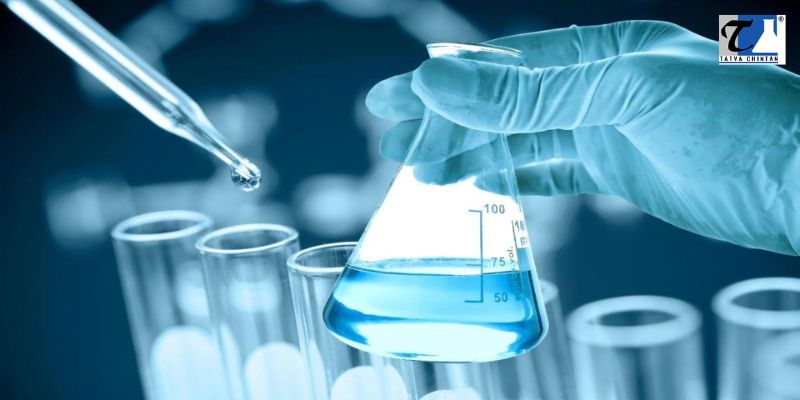Understanding the Applications and Uses of Diethyl Disulfide in Various Industries
The chemical industry is a booming one. Various chemical compounds are essential to the many different production processes of products. Diethyl disulfide is a compound with many applications across multiple industries.
What Is Diethyl Disulfide?
Diethyl Disulfide is a colorless to pale yellow liquid characterized by its robust and unpleasant odor. It is a member of the group of organic compounds with a sulfur-sulfur bond known as disulfides. This compound finds applications in various chemical processes and is frequently used as a solvent, especially in the petrochemical industry.
Furthermore, Diethyl Disulfide has been researched for possible medical uses. It has antimicrobial qualities and is being looked into as an antithrombotic agent. This compound has many uses, but because of its potent odor and possible health risks, it must be handled carefully, and safety precautions must be followed in lab and industrial settings.
Applications and Uses of Diethyl Disulfide in Various Industries
Diethyl Disulfide is increasingly becoming popular in chemical manufacturing processes. Due to its versatility, it finds several applications across various industries, which may include the following:
1. Pesticide manufacturing
Diethyl Disulfide is a precursor to some pesticides. This makes it an essential ingredient in the production of pesticides. It is a component of organosulfur compounds, which increase the effectiveness of pesticides against various pests.
Due to its chemical characteristics, it helps create pesticides with particular target functions and is a critical ingredient in creating efficient pest control solutions. Additionally, it provides a chemical basis for synthesizing strong and focused pesticides necessary for crop protection and pest management.
2. Rubber accelerator production
Rubber accelerators are made using Diethyl Disulfide, an essential component of the rubber industry. As their name implies, these accelerators quicken the vulcanization process, which is necessary to give rubber products the desired qualities.
Also, chemical reactions involving this compound result in the formation of significant accelerators like thiurams and dithiocarbamates. These accelerators subsequently promote rubber-polymer cross-linking. This process greatly improves the Rubber's mechanical and chemical qualities, including its strength, elasticity, and resistance to chemicals and wear.
3. Antimicrobial properties
Due to its unique sulfur-containing structure, Diethyl Disulfide has attracted attention for its potential as a natural antimicrobial agent. Studies have shown its effectiveness against various bacteria and fungi, demonstrating its ability to control their growth.
This promising property makes it a potential chemical compound for development in various fields, including hygiene products, medical applications, and agricultural formulations. For hygiene products, its antimicrobial activity makes it worthwhile in the manufacturing of soaps, detergents, and other hygiene products.
It could also be beneficial in disinfectants, wound dressings, and even antimicrobial treatments for medical applications. For agricultural formulations, it could be used with pesticides and fungicides to protect crops from microbial threats. This can help reduce the reliance on synthetic chemicals.
4. Oil and gas industry
The efficient operation of the oil and gas sector depends heavily on Diethyl Disulfide. The primary purpose of this chemical compound is to effectively remove Hydrogen Sulfide from streams of crude oil and natural gas. Hydrogen Sulfide is a hazardous and caustic gas.
The process of reducing corrosion problems in pipelines and equipment is made more accessible by the absorptive properties of diethyl disulfide. This also helps to ensure that safety and environmental regulations are followed.
Diethyl Disulfide is also helpful in drilling operations because of its remarkable solvent qualities. It is a valuable compound for the oil and gas sector because of its versatility in the field and ability to address corrosion and sulfur-related issues effectively.
5. Chemical intermediates
Diethyl Disulfide is essential to chemical intermediates and synthesizes many different organic compounds. It can be used as a reactive species in the disulfide bond formation process and as a precursor in the thiol derivative production process, among other chemical intermediates.
This compound's role in these processes makes it helpful in producing specialty chemicals, agrochemicals, and pharmaceuticals. Diethyl Disulfide's versatility in enabling crucial reactions and transformations in organic synthesis helps develop a variety of compounds.
6. Chemical synthesis
When it comes to chemical synthesis, Diethyl Disulfide is a useful reagent. This versatile reagent is widely used as a sulfur source in reactions when synthesizing organosulfur compounds. Thiolation reactions can be helpful when used to add thiol groups to organic molecules.
Moreover, it is a precursor in producing dithiocarbamates, which are helpful in medicine and agriculture. Disulfide bonds are formed during organic transformations, in part by Diethyl Disulfide. Its application in many different chemical reactions ensures it is used across various industries.
7. Solvents in chemical processes
Diethyl Disulfide is a versatile solvent used in various chemical reactions. It is helpful for many processes, such as Grignard reactions and metal-catalyzed procedures. This is partly due to its broad dissolution of organic and inorganic compounds.
Notably, its aprotic and non-polar nature further increases its effectiveness, which makes it especially appropriate for circumstances requiring such qualities. Its unique combination of characteristics makes it possible to improve reaction kinetics and contribute substantially to effective product formation.
Conclusion
Diethyl Disulfide is a versatile ingredient used in a wide range of industrial processes, and it is essential to the synthesis of organic compounds and the production of polymers. Although its versatility as a solvent highlights its wide range of applications, care must be taken because of its potent odor and possible health risks. Strict safety precautions and protocol adherence are essential in industrial and laboratory settings.






Comments
Post a Comment